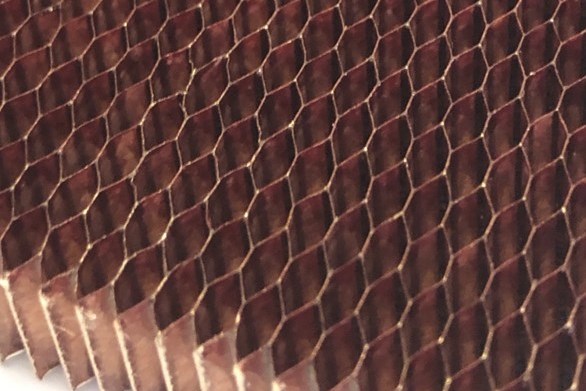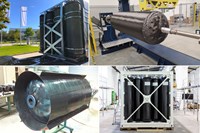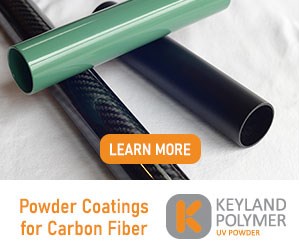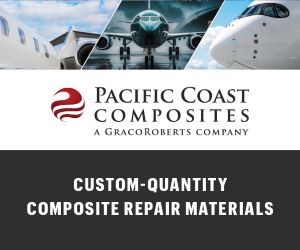BreakThru Technology reduces free formaldehyde in phenolic resins
The technology reduces free formaldehyde in phenolic fiber-reinforced plastic (FRP) resins to below 1000ppm (less than 0.1%).

Georgia-Pacific Chemicals
New BreakThru Technology launched by Georgia-Pacific Chemicals (Atlanta, Ga., U.S.) is said to have been shown in laboratory testing to reduce free formaldehyde in phenolic fiber-reinforced plastic (FRP) resins to below 1000ppm (less than 0.1%). The company notes that the technology shows promise for a variety of industrial applications by potentially meeting or exceeding standard phenolic resin performance at lower residual monomer levels for both water and solvent-soluble resins.
According to the company, reducing residual formaldehyde content in phenol-formaldehyde resins (phenolic resins) is a frequent request in composites and other industries. Phenolic resins used for industrial applications, such as abrasives, filtration, honeycomb, foaming, etc., historically contain free formaldehyde levels ranging from 0.3% to greater than 1.5%.
Georgia-Pacific Chemicals’ analysis also shows that free phenol levels are reduced with BreakThru technology and that resins have a faster curing profile. In addition, a honeycomb composite compressive strength study suggested improved performance in those applications.
Analytical studies of this technology will be presented as a technical paper at CAMX September 21-24, 2020 by Carlos Maldonado, senior development chemist, Georgia-Pacific Chemicals. They will compare the new technology with a commercially-available phenolic resin via thermal analysis, gas phase chromatography and high-performance liquid chromatography.
Georgia-Pacific Chemicals will also be featuring BreakThru technology at the Virtual CAMX conference September 21-24, 2020.
Related Content
-
The making of carbon fiber
A look at the process by which precursor becomes carbon fiber through a careful (and mostly proprietary) manipulation of temperature and tension.
-
Novel dry tape for liquid molded composites
MTorres seeks to enable next-gen aircraft and open new markets for composites with low-cost, high-permeability tapes and versatile, high-speed production lines.
-
One-piece, one-shot, 17-meter wing spar for high-rate aircraft manufacture
GKN Aerospace has spent the last five years developing materials strategies and resin transfer molding (RTM) for an aircraft trailing edge wing spar for the Airbus Wing of Tomorrow program.















